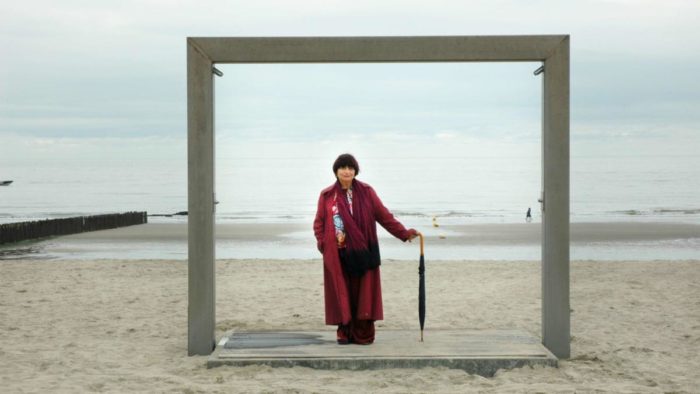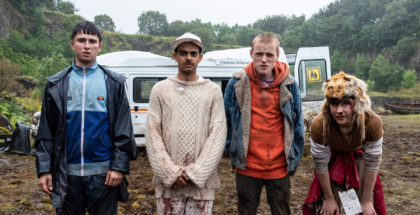VOD film review: The Beaches of Agnes
Review Overview
Agnes Varda
8Cinema
8Memory
8David Farnor | On 20, Sep 2018
Director: Agnes Varda
Cast: Agnes Varda, Andre Lubrano, Blaise Fournier, Vincent Fournier
Certificate: 18
Watch The Beaches of Agnes online in the UK: Apple TV (iTunes) / Prime Video (Buy/Rent)
French New Wave legend. Honorary Academy Award winner. Nonagenarian. Agnes Varda is a tour de force of cinema who just doesn’t seem to stop – at the time of writing, her 22nd film, Faces Places, is about to debut in cinemas and on-demand. But rewind back to 2008 and she was making what she thought would be her final movie: an autobiographical documentary that sees her revisit her past, both personal and professional.
As far as swansongs go, you couldn’t ask for much better – and it’s testament to how infectiously enthusiastic the director is, both in front of and behind the camera, that she’s gone on to make several more films since. She’s a captivating, compelling figure to narrate her own life story, one that’s as formally bold as it is consciously fragmented – an exploration of the bond between movies and memory as much as a journey of recollection and reflection.
It’s a voyage that takes us from the riverbanks of the Seine in Paris to the beaches of California. She arrived there back in the 1960s, when she was married to none other than Jacques Demy. There, the New Wave figure found herself naturally swept up in the radical movements taking place, capturing the Black Panthers on documentary tape, while also protesting herself, complete with child-on-the-way in tow.
Her creativity and drive saw her become friends with Andy Warhol, Chris Marker and more, but there’s no doubting whose story this is, as Varda crafts an increasingly inventive window onto her world – the latter, for example, appears in the form of a bright orange cat, while her crew are all introduced on-screen through a string of to-camera glances via antique mirrors they assemble in a wide open stretch of sand. Throughout, Varda is there, rowing, walking backwards and dancing through clips and recreations of her own work. “I’m playing the role of a talkative, plump old lady,“ she informs us, with a self-aware twinkle.
At the movie’s heart is the interplay between real time and screen time – one poignant observation notes how she had the urge to film her husband in his later years. Because what else could be more fitting, or more immortal, for a beloved filmmaker than a movie preserving them for centuries to come? Near the end, Varda constructs a dazzling art installation, which takes reels of celluloid and stretched them over a basic house-shaped frame. “It feels like I live in cinema. Cinema is my home,” she muses with wistful, profound chirpiness. “I think I’ve always lived in it.” The result is a smart, playful portrait of an enchanting director – and who better to paint it than herself?






















